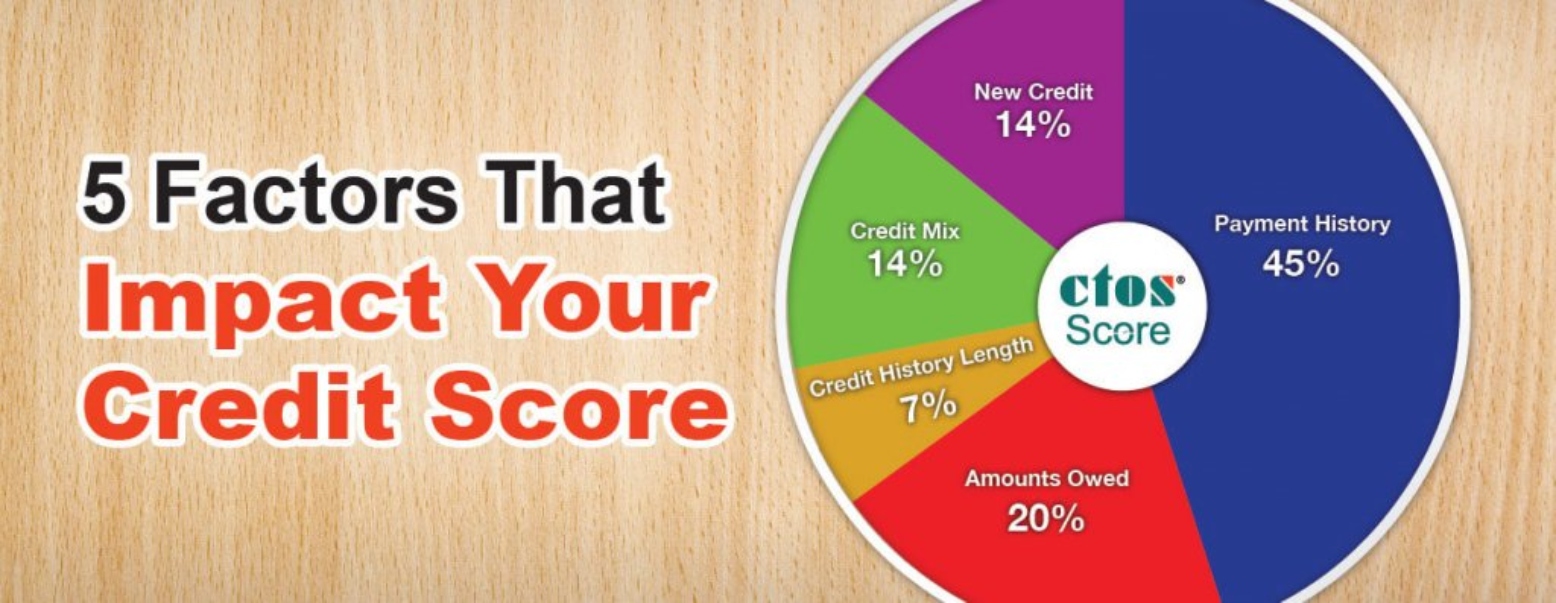Credit scoring systems sift through and examine credit reports to assess your credit management skills. They concentrate on elements like your payment history,
overall debt, use of credit available, length of credit history, credit mix, and new credit. Your credit score is like a masterfully arranged piece where each element plays a specific role.
You may take charge of your financial destiny by being aware of the factors that affect your credit scores. Your credit score will remain in balance as long as you practise responsible money management, make payments on time, and make wise credit decisions, which will lead to more favourable financial prospects.
What Affects Your Credit Scores?
Payment History
Your payment history is like the heartbeat of your credit score. It’s the most significant factor influencing your score. Consistently making on-time payments for loans, credit cards, and bills is crucial. Late payments, collections, and defaults can have a severe negative impact.
Credit Utilization
Credit utilization is the ratio of your credit card balances to your credit card limits. High balances relative to your limit can lower your credit score. Aim to keep your credit utilization below 30% to maintain a healthy score.
Length of Credit History
The age of your credit accounts matters. A longer credit history demonstrates your ability to manage credit over time. Avoid closing old accounts, as it can shorten your credit history.
Credit Mix
Lenders like to see a mix of credit types. Having a blend of credit cards, installment loans (like a mortgage or car loan), and retail accounts can positively impact your score.
New Credit Inquiries
Each time you apply for new credit, a hard inquiry is recorded on your credit report. Multiple inquiries in a short period can lower your score. Be mindful of how often you seek new credit.
Public Record
Bankruptcies, tax liens, and civil judgments can significantly harm your credit score. These negative marks can stay on your credit report for several years.
Credit Report Accuracy
Inaccuracies on your credit report can drag your score down. Regularly review your credit report and dispute any errors you find.
Closed Accounts
Closed accounts, particularly those with a negative history, can remain on your credit report for several years. Even though they’re closed, they can still impact your score.
More Contents on Credit Score
The Complete Guide to Understanding Credit Scores
Why Having a Good Credit Score Is Important
Why There Are Different Credit Scores
What Affects Your Credit Scores?
How Do I Improve My Credit Score?
Where Can I See My Credit Score?
What Credit Score Do I Need to Buy a Car?
Can You Get a Car With Bad Credit?
What Credit Score Do I Need to Get a Good Deal on a Car?
Why Is a Credit Score Important When Buying a Car?
What to Do if You Don’t Have a Credit Score
Monitor Your Credit Report and Score
Finally, credit ratings are like a highly tuned symphony that is influenced by a variety of things. Understanding these variables enables people to take charge of their financial future through prudent financial management, regular payments, and wise credit decisions.
